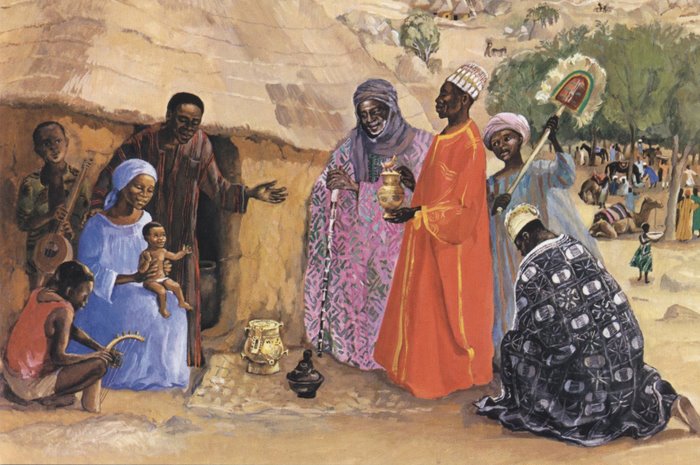 On January 6, the church calendar celebrates the feast of Epiphany. Mark Hansard helps us prepare with this meditation on Epiphany and the academic life.
On January 6, the church calendar celebrates the feast of Epiphany. Mark Hansard helps us prepare with this meditation on Epiphany and the academic life.
Reading
Reflection
Epiphany, the season after Christmas and before Lent, is a celebration of the revelation of Jesus. On January 6th the Western church celebrates the coming of the wise men, who divined from the stars the appearance of a new Jewish King. Who the wise men were, and what methods they used to discover the coming of Jesus are mysterious in Scripture, but they represent the Light of Christ coming to the Gentiles. Isaiah 9:2 says, “The people who have walked in darkness have seen a great light; those who have lived in the land of deep darkness, on them a light has shined.”
The word Epiphany, in modern English usage, often means a sudden insight or an “aha” moment. We can just imagine the wise men having an “aha” moment as they charted the stars and realized something unusual: a King was born, a King important enough to take a long journey to find and worship him. And, as we see Jesus break into the darkness at Christmas and then begin his ministry later in life, many of those around him have their own epiphanies, their own sudden, astonishing insights as to who he was or who he claimed to be. We see this as the Epiphany season continues with Jesus’ baptism by John, and Jesus’ turning of the water into wine. Jesus is revealed as more than just a man, but as God himself. Throughout the Gospels Jesus continually astonishes people and they are forced to reevaluate who he could possibly be.
As well, as you go through your own research and work on your campus, you may have an “epiphany,” a sudden realization of how to solve an intractable problem in your research or teaching. Throughout academic history, there are famous “aha” moments by scholars and teachers that have changed the course of history. Those are gifts from God too, as he created everything in the universe, knows all truth, and guides your research. No detail is too small and no problem too insignificant for him to care. The Jesus who turned water into wine, who walked on water and broke into history in a stable, guides history and can guide your hand in your own work, if you’ll ask him to. May this be a special season of Epiphany for you, both in your celebration of Jesus, and in the joy of your work guided by his hand.
Questions
- Read Matthew 2:1-12. Magi were diviners, possibly astrologers from Babylon or Persia. While we don’t know their methods for identifying the star, God obviously used their work to bring them to Jesus.
- Take a few minutes to close your eyes and imagine what it would have been like to discover a star that pointed to a new King. What feelings would the Magi have? What would have motivated them to come to Jerusalem?
- Think of a famous discovery in your own area of research. Imagine the feelings of the researcher as he or she had their “aha” moment. How can you pray for your own research, and your own “aha” moments? In what ways can the Lord guide you in your own work?
Prayer
Lord Jesus, thank you for breaking into history and being born as a baby to save us. Thank you for using the research of the Magi to lead them to bring homage to Jesus. Omniscient Lord, you know all facts before we discover them. Lead us and guide us in our own research to bring glory to you. Amen.
Image: JESUS MAFA. Visit of the Three Wise Men, from Art in the Christian Tradition, a project of the Vanderbilt Divinity Library, Nashville, TN. http://diglib.library.vanderbilt.edu/act-imagelink.pl?RC=48292 [retrieved January 3, 2015].
Mark is on staff with InterVarsity Christian Fellowship in Manhattan, Kansas, where he ministers to Faculty at Kansas State University and surrounding campuses. He has been in campus ministry 25 years, 14 of those years in faculty ministry. He has a Master’s degree in philosophy and theology from Talbot School of Theology, La Mirada, CA, and is passionate about Jesus Christ and the life of the mind. Mark, his wife and three daughters make their home in Manhattan.

ps. great artwork used here! love it!
So glad you liked it! The project it came from is really an amazing example of collaborative art made by believers: http://www.jesusmafa.com/?page_id=317&lang=en
We’re so grateful to be able to use the images through the great work of the artists and the generosity of the Vanderbilt Art in the Christian Tradition database.
Cool! Thanks for sharing!